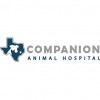
Oak Ridge Animal Clinic has been serving pets and pet owners in Spring, Texas and the surrounding area for more than twenty years, providing gentle and knowledgeable animal health care. Among our many friends and neighbors here, our animal hospital has a reputation for excellence in veterinary care delivered by caring and friendly staff. During office hours ORAC is capable of handling pet emergencies.
However, for after-hours emergencies we refer our clients to Emergency Pet Care of Texas (832.521.8521).
However, for after-hours emergencies we refer our clients to Emergency Pet Care of Texas (832.521.8521).
Services
Dr. Schneider met his wife, Rebecca, while in college and they've now been married since 2000.
They have 3 beautiful children together: Brady, Molly and Brett.
Dr. Schneider has a love for surgery, from routine spays and neuters to surgical dental extractions and orthopedics.
When he's not here taking care of our furry loved ones, he can be found fishing, hunting, running and triathlons or playing with his kids.
Dr. Schneider and Rebecca are also the parents of a four legged child in the form of a Golden Retriever named Henry.
They have 3 beautiful children together: Brady, Molly and Brett.
Dr. Schneider has a love for surgery, from routine spays and neuters to surgical dental extractions and orthopedics.
When he's not here taking care of our furry loved ones, he can be found fishing, hunting, running and triathlons or playing with his kids.
Dr. Schneider and Rebecca are also the parents of a four legged child in the form of a Golden Retriever named Henry.
Your pet's dental health is an important part of his overall health.
According to the American Veterinary Dental Society, 80% of dogs and 70% of cats have oral disease by the age of 3. It is the most frequently diagnosed health problem in pets.
Dental disease can affect other organs in the body: bacteria in the mouth can get into the blood stream and may cause serious kidney infections, liver disease, lung disease, and heart valve disease.
Oral disease can also indicate that another disease process is occurring elsewhere in a pet's body.
According to the American Veterinary Dental Society, 80% of dogs and 70% of cats have oral disease by the age of 3. It is the most frequently diagnosed health problem in pets.
Dental disease can affect other organs in the body: bacteria in the mouth can get into the blood stream and may cause serious kidney infections, liver disease, lung disease, and heart valve disease.
Oral disease can also indicate that another disease process is occurring elsewhere in a pet's body.
Our veterinarians adhere to the highest level of standards for all surgical procedures.
Our highly skilled doctors place the utmost emphasis on pain management to ensure your pet is safe and comfortable throughout the treatment process.
Using advanced technology, your pet's vital signs are monitored by our well trained veterinary technicians, who will remain with your pet through recovery.
After performing a complete examination and reviewing your pet's medical state, we will discuss treatment options that may include surgery and put together a plan that suits the needs of both you and your pet.
Our highly skilled doctors place the utmost emphasis on pain management to ensure your pet is safe and comfortable throughout the treatment process.
Using advanced technology, your pet's vital signs are monitored by our well trained veterinary technicians, who will remain with your pet through recovery.
After performing a complete examination and reviewing your pet's medical state, we will discuss treatment options that may include surgery and put together a plan that suits the needs of both you and your pet.
If surgery is suggested, you can feel comfortable knowing that our hospital only administers anesthesia in the utmost safe and cautious manner.
Pre-surgical blood work is recommended for all pets receiving general anesthesia, which provides a vital check on the health of a patient and determines whether they are an appropriate candidate for surgery.
Testing allows us to diagnose and treat previously undetected medical problems and also can assist us in determining the appropriate anesthetic.
Depending on the urgency of the condition, abnormalities are addressed, drug selections are modified and in some cases surgeries may be delayed or even canceled if the veterinarian deems necessary.
Pre-surgical blood work is recommended for all pets receiving general anesthesia, which provides a vital check on the health of a patient and determines whether they are an appropriate candidate for surgery.
Testing allows us to diagnose and treat previously undetected medical problems and also can assist us in determining the appropriate anesthetic.
Depending on the urgency of the condition, abnormalities are addressed, drug selections are modified and in some cases surgeries may be delayed or even canceled if the veterinarian deems necessary.
Spaying or neutering your pet can help them live a longer, healthier life, minimizes behavior problems and helps control the population of unwanted pets.
According to the American Veterinary Medical Association, nearly 12,500 puppies are born in the United States each hour.
Spaying or neutering your pet eliminates unwanted litters, which contributes to thousands of euthanasia procedures and millions of stray animals.
If you are shopping around for a competitive price on this procedure, be sure to question the type of anesthetic used and the monitoring equipment and procedures followed.
According to the American Veterinary Medical Association, nearly 12,500 puppies are born in the United States each hour.
Spaying or neutering your pet eliminates unwanted litters, which contributes to thousands of euthanasia procedures and millions of stray animals.
If you are shopping around for a competitive price on this procedure, be sure to question the type of anesthetic used and the monitoring equipment and procedures followed.

